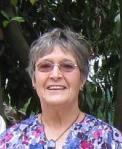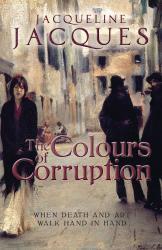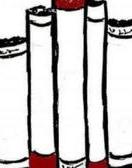
Jacqueline Jacques
I hope you enjoyed the first part of the Q and A with writer Jacqueline Jacques, published here yesterday. Follow the link to Part I if you missed it and if you also missed my original introduction of Jacqueline’s historical crime novel on Thursday, then click over to that first to catch up with us! I am working on a piece about the book (which I enjoyed very much) at the moment. I really liked the idea of making the main character an artist who, through his role sketching crime suspects, becomes involved in the events which follow. And of course, Walthamstow was a fascinating character in its own right, at the heart of the novel and all the action.
And now, to the second half of my email interview with Jacqueline…
When you decided to go ‘darker’, did you have any idea in which direction it would take your work? Did the difficult subjects you chose to deal with in Mary Quinn’s life affect you as you worked?

I’ve tried the paranormal and outgrown it. Horror wasn’t for me, so I guessed that my next novel would probably be crime fiction of some sort. I didn’t want to be bogged down in police procedurals, clues, clever deductions and red herrings, so I set an artist on a voyage of discovery. He was the one to find out how ordinary, law-abiding people could become the victims of unscrupulous predators. I hadn’t, at that point, read any crime fiction apart from Stef Penney’s The Tenderness of Wolves, so I fell back on my own studies in sociology, on various news stories, on a story structure recommended by the crime writer, Michelle Spring, and on my imagination. Eventually, after the third or fourth draft I knew exactly where I was going. And yes, I was very moved by Mary’s suffering, what she was forced to do to survive. I wanted to make life easier for her, but I couldn’t. It was horrible but it happened and I had to record it.
I read on your website that you used to be a teacher. I wondered if you would ever be inspired to write novels for children as other former teachers, such as Roddy Doyle have done.
Possibly, if time allows, but I have a number of adult novels I should like to write first.
I went to a Kate Atkinson interview recently, in which she was asked what minor character in her fiction she would like to revisit and why? May I ask you the same question?
I’d be interested to see how little Clara grows up, given the trauma I’ve put the poor child through (I feel a little responsible for her.) I suppose I might get the chance if I write more books about Archie Price.
Just to close with, can I ask you why you decided to move from the short story form to the novel and will you perhaps go back some day?
I find I need the longer form of story-structure in order to explore and develop my characters and plot. Short stories cannot always contain all I need to say. If I returned to short-story writing it would be purely as an exercise, I think, to test myself against a word count or the discipline of making a story believable in a few words. I once heard Beryl Bainbridge say, ‘Why waste characters and a good plot on a short story when you can write a book?’

Skin Deep, Honno Press, 2004
Many thanks to Jacqueline for taking the time to answer my questions about her work. As I mentioned yesterday, she is in the running for the fiction award in the People’s Book Prize 2013 in which the voting is open until 20th May. As well as being a successful writer, Jacqueline is also an artist and you can check out her website for more information on her work. You could also look up her author page on Honno Press, for earlier novels such as her science fiction novel Skin Deep (2004).
Thanks for reading and don’t forget to drop a line in the box if you have any comments or suggestions for future posts.

